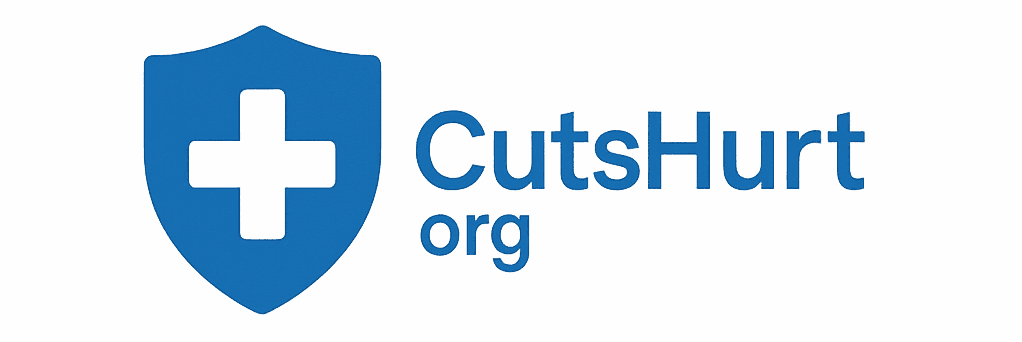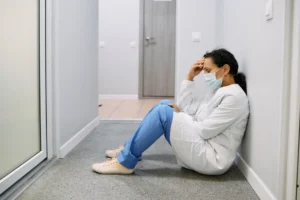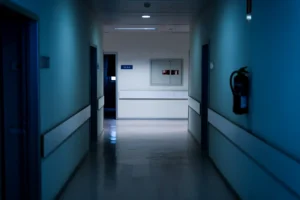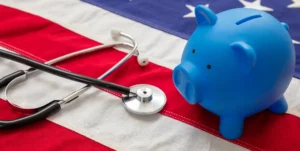When Illness Is Treated as a Crime: The Consequences of Healthcare Funding Cuts
Across the country, jails and emergency rooms have become the default destinations for people experiencing medical and mental health crises. Why? Because the systems designed to help them have been gutted by funding cuts. As healthcare resources vanish, communities are left to respond with what remains—often law enforcement.
This troubling shift transforms illness into a criminal issue, pushing vulnerable individuals deeper into cycles of punishment instead of healing. In this post, we explore how healthcare funding cuts create dangerous gaps and why treating sickness like a crime is both unjust and unsustainable.
Mental Illness Behind Bars
Today, more than 44% of jail inmates in the United States have been diagnosed with a mental health disorder. Many of them end up incarcerated not because they committed serious crimes, but because they lacked access to care. When funding for community mental health programs disappears, so do early interventions that prevent crises.
Consider Marcus, a 28-year-old veteran diagnosed with PTSD and bipolar disorder. When his local VA mental health program lost funding, his support group disbanded. Months later, after a manic episode in public, he was arrested for disorderly conduct and spent 45 days in jail. “What I needed was treatment,” he says. “What I got was a cell.”
Hospitals Can’t Keep Up
As funding drops, emergency departments become overwhelmed. Hospitals struggle to find psychiatric beds, addiction specialists, or even basic social work support. In some states, patients experiencing psychosis or withdrawal wait days in ERs for appropriate care—if they receive it at all.
Meanwhile, emergency medical staff are stretched thin. They’re trained to stabilize, not to replace long-term therapy or addiction recovery programs. But those programs often no longer exist due to budget cuts at the state and federal level.
Police as First Responders
Without accessible care systems, police officers are increasingly asked to step in. In fact, law enforcement officers now spend a significant portion of their time responding to mental health and addiction-related incidents. Yet, they are not mental health professionals.
This mismatch leads to tragic outcomes. People in crisis may be arrested, restrained, or worse—especially if they cannot follow commands during a psychiatric episode. What could have been a peaceful intervention turns into trauma, violence, or incarceration.
And the cost is enormous. Jailing a person with mental illness costs taxpayers far more than community-based treatment would. It’s also less effective and more likely to result in repeat offenses.
Criminalizing Addiction
Substance use disorders are another area where healthcare funding cuts turn illness into crime. In communities where opioid treatment programs have been shut down, people with addiction face arrest for possession or public intoxication instead of receiving detox and counseling services.
This criminal approach doesn’t solve the problem—it magnifies it. Addiction requires long-term treatment, not jail time. Yet many counties lack the funding for medication-assisted therapy (MAT) or harm reduction programs like needle exchanges.
When budgets are balanced on the backs of the sick, the cycle continues: illness, arrest, release, and relapse.
The Disproportionate Burden on Marginalized Communities
Funding cuts do not impact all groups equally. Communities of color, low-income neighborhoods, and rural areas often experience the sharpest reductions in care. These same communities are also more likely to be over-policed, which intensifies the risk of illness being treated as misconduct.
Without public clinics, community-based therapists, or crisis teams, people in these areas face few options. And the cost of doing nothing continues to rise—in jail populations, emergency room visits, and human lives.
A System in Crisis
This is not just a healthcare issue—it’s a societal one. When we underfund essential care, we don’t eliminate the need. We simply shift the responsibility to systems that were never designed to carry it. Law enforcement becomes healthcare. Jail becomes a treatment center. And those most in need are punished for being sick.
We explored the impact of federal cuts on medical research in a previous post. But here, the damage is not just slow—it’s immediate. It criminalizes the vulnerable and places public safety in jeopardy.
What Can Be Done?
We need a complete reimagining of how we respond to health crises. Here’s where change must begin:
- Restore funding to community health programs. Invest in mental health clinics, addiction treatment, and crisis response teams.
- Train and fund alternative responders. Programs pairing mental health professionals with first responders reduce arrests and increase positive outcomes.
- Decriminalize medical conditions. Stop using jails as treatment centers. Expand diversion programs that connect people to care instead of jail cells.
Organizations like NAMI are leading efforts to restore compassionate care systems. Your support, advocacy, and vote can help drive meaningful change.
Because no one should be punished for being sick. Illness is not a crime. It’s time our systems reflected that truth.










